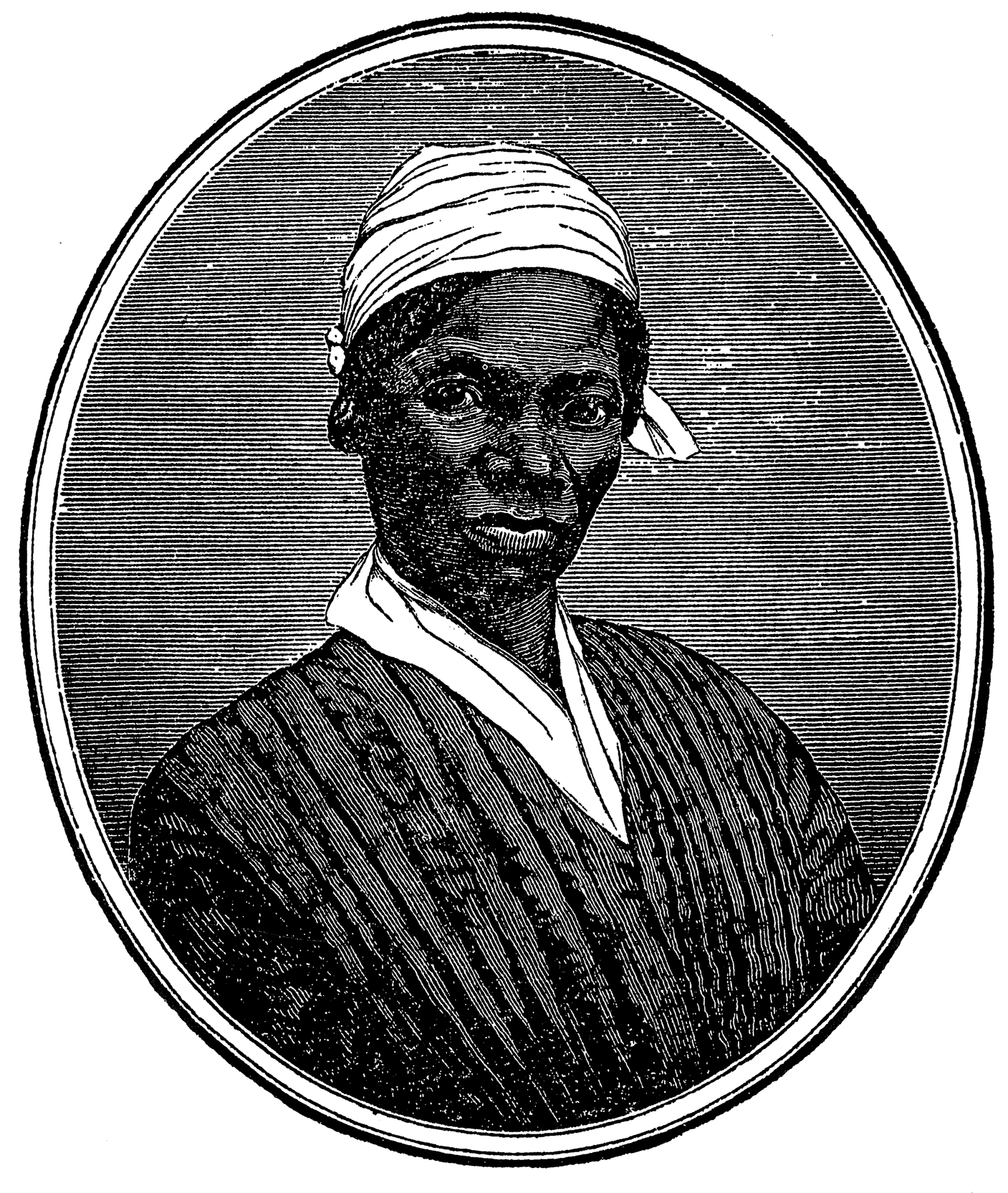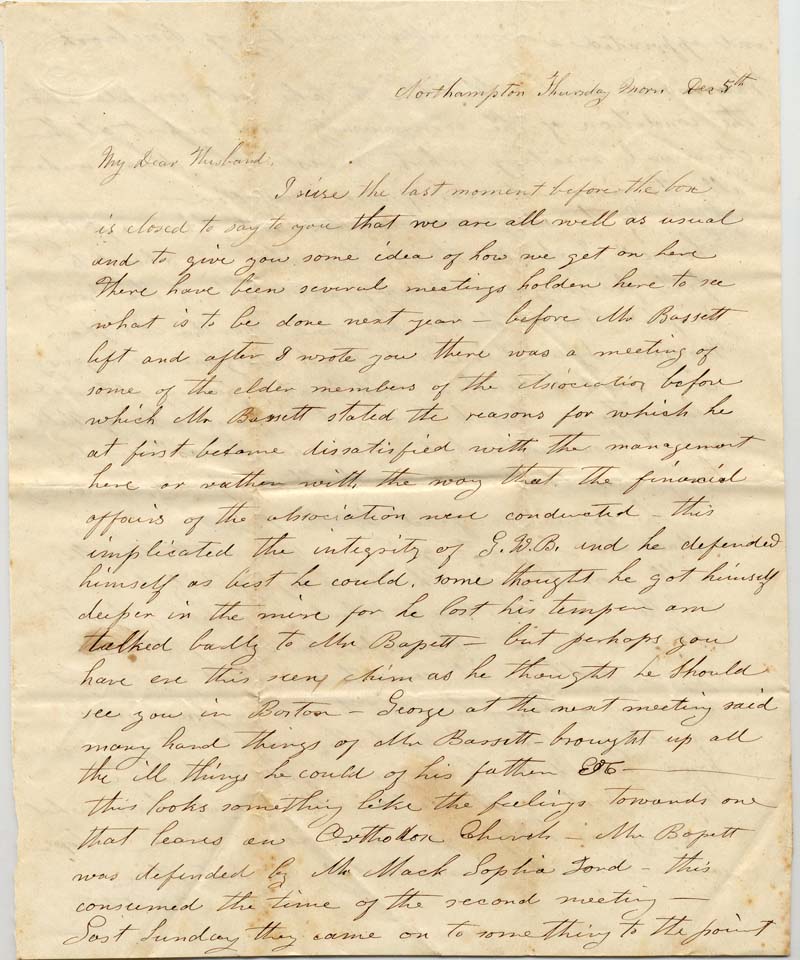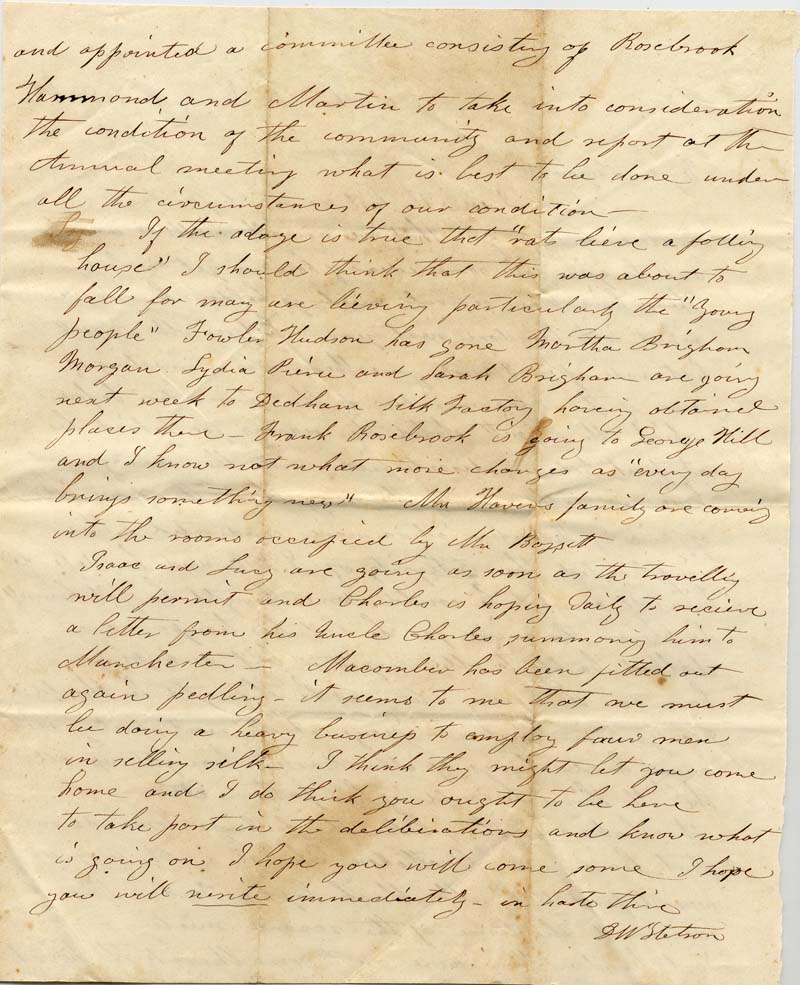Transcript:
[Dec 5, 1844]
Northampton Thursday Morn Dec 5th [1844]
My Dear Husband,
I use the last moment before the box is closed to say to you that we are all well as usual and to give you some idea of how we get on here There have been several meetings holden here to see what is to be done next year — before Mr Bassett left and after I wrote you there was a meeting of some of the elder members of the Association before which Mr Bassett stated the reasons for which he at first became dissatisfied with the management here or rather with the way that the financial affairs of the Association were conducted – this implicated the integrity of G.W.B.1 and he defended himself as best he could. some thought he got himself deeper in the mire for he lost his temper and talked badly to Mr Bassett – but perhaps you have ere this seen him as he thought he should see you in Boston – George at the next meeting said many hard things of Mr Bassett – brought up all the ill things he could of his father &c2 —
this looks something like the feelings towards one that leaves an Orthodox Church – Mr Bassett was defended by Mr Mack Sophia Ford – this consumed the time of the second meeting — Last Sunday they came on to something to the point and appointed a committee consisting of Rosebrook Hammond and Martin3 to take into consideration the condition of the community and report at the Annual meeting what is best to be done under all the circumstances of our condition —
If the adage is true that “rats lieve a falling house” I should think that this was about to fall for many are lieving particularly the “young people” Fowler Hudson has gone Martha Brigham Morgan Lydia Pierce and Sarah Brigham are going next week to Dedham Silk Factory haveing obtained places there – Frank Rosebrook is going to George Hill and I know not what more changes as “every day brings something new”4 Mr Havens family are comeing into the rooms occupied by Mr Bassett
Isaac and Lucy are going as soon as the travelling will permit and Charles is hoping daily to recieve a letter from his Uncle Charles summoning him to Manchester – Macomber has been fitted out again pedling5 – it seems to me that we must be doing a heavy business to employ four men in selling silk – I think they might let you come home and I do think you ought to be here to take part in the delibirations and know what is going on. I hope you will come [soon?] I hope you will write immediately – in haste thine
DW Stetson
Notes
- George W. Benson.
- In the 1830s Bassett had been censured and then excluded from the Society of Friends because his membership of antislavery and nonresistance groups was held to violate Quaker constraints on associating outside the Society. William’s father, Isaac Bassett, had been prominent in the attempt to discipline his son. Bassett’s case was regarded by radical abolitionists and nonresistants as emblematic of the churches’ corrupt involvement with slavery. For Benson, who had Quaker sympathies and some of whose family were Quakers, the issue had been a personal one and on this occasion he evidently revealed his animosity towards Isaac Bassett’s stance.
- For Rosbrooks see note 105 and Hammond see note 30, above.
Joseph C. Martin (1808-1865), from the small farming town of Chaplin, Conn., had joined the NAEI with his family in April 1844 and would stay for the rest of its existence. He was elected as its President in 1845, in succession to George W. Benson. One of a group of devoted abolitionists in Chaplin, Martin had described their disputes with and subsequent expulsion from the town’s church in a letter to William Lloyd Garrison, published in Liberator, January 5, 1844. Chaplin was near Brooklyn, and Martin’s relatives were among the Stetsons’ neighbors and acquaintances in that part of Connecticut. - Romulus Fowler Hudson (1828- ), a son of Erasmus D. and Martha T. Hudson, had remained in the NAEI after his parents withdrew in 1843. Sarah Brigham (1825-1886) and Martha Brigham (1827- ) had joined the community in November 1843 with their recently-widowed father; like Lydia B. Pierce, who had been there since February 1843, they may have worked in the silk department. “Morgan” may have been Littleton T. Morgan (1820- ), from Cambridge, Mass.. Their move to the Dedham silk factory probably proved a mistake, because that mill was soon destroyed by fire. Francis Rosbrooks (1825- ) was a son of Ezra and Polly Rosbrooks (see note 105); George Hill (c.1822- ) had lived at the NAEI for almost a year after its founding, but had subsequently moved, probably to a nearby farm.
- H.W. Macomber (c.1808- ), though not a member of the NAEI, was hired to peddle its silk products in 1844 and 1845. After the breakup of the community, Macomber and a local merchant employed Samuel L. Hill to continue running its silk operations in conjunction with them.





